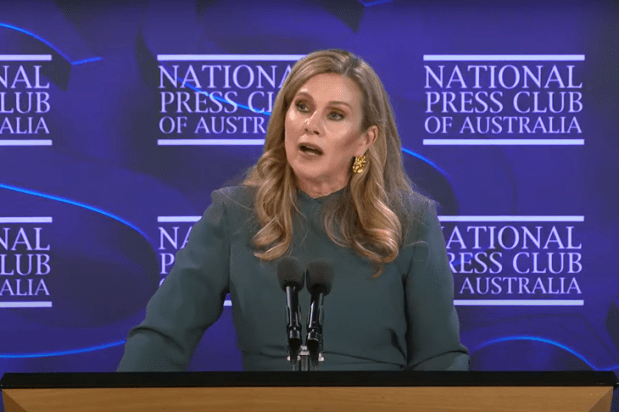While statistical anomalies are present in all demographic reports back to 1788, Australia was almost entirely a nation born of the stock and values of the English, Irish, Scottish, and Welsh peoples until about the 1950s and 1960s.
The ideas and values of the British Isles guided our nascent society, from our system of government to legal, linguistic, religious, and cultural peculiarities.
After the successful integration of Slavs, Italians, and Greeks in the Interwar and Post-War period, Whitlam’s immigration reforms in 1972-73 opened Australia up to all nations. Millions took the opportunity to leave war-torn or economically impoverished lands to join in our national story.
Newcomers often added to our national character while respecting and adopting the emphatically successful traits of the host culture. The existing blueprint of our society was a source of societal strength, hence why migrants chose us in the first place.
A ‘Close-Run Thing’
Every January in recent memory, debate is rekindled about whether we ought to celebrate the day Captain Phillip landed in Sydney Cove in 1788.
Few will know that Phillip’s squadron narrowly beat a competing French squadron to set up a colony and claim the eastern seaboard of Terra Australis. Indeed, it had been a secret so heavily guarded in the late 1780s that European espionage had been racing to substantiate reports of a magnificent harbour in the South Seas. One so deep and defensible as to ensure lasting dominion in that part of the world.
By a mere matter of hours, the British prevailed.
Many are now corralled into believing that January 26 represents the dispossession of Australia from its original inhabitants.
Due to this acquired idea, the educated and the intelligent alike combine with bandwagoners to lament our very existence.
Even primary school teachers parrot the recent musings of twisted academia and far-left activism to impressionable youths, as if it were solid gospel.
It’s quite clear to me though, that Australia did not exist until 1788.
Let me explain why.
Does Land Maketh a Nation?
The ‘Australia’ we seek to celebrate on Australia Day is not the landmass we reside on. Even prior to colonisation, the 250+ Aboriginal tribes had no concept of our continent and had no name for it.
Now of course the land and climate contribute to our national character and cultural psyche. How could it not?
But our flag, anthem, government, laws, customs, culture, recreation, lifestyle, freedom of speech and thought – and even military prowess – are not emanated from this soil and sky.
The land alone is also not why we are a destination for migration. The land itself is not why we are high on the global leader-board for almost every economic, social, and healthcare advancement.
In the spirit of debate, you could argue that our landmass bestowed upon us the perfect backdrop for agriculture and resource extraction – producing said advancement. But the technological knowledge to wield the land was not present here prior to 1788. The Industrial Relations system (how to organise, care, and compensate the people who did the work) for example, was not present prior to 1788.
Rather, both were born through the toil and suffering of the working classes in the mines, fields, foundries, and factories of an industrialising Great Britain. Defended by Christian morals and idealism and spurred on through rapacious capitalism, Australia’s material wealth and health was grown. Alongside rigorous scientific inquiry – and a genuine care for the land – a rugged individualism and a curiously curated egalitarianism blossomed with it.
Notwithstanding the above, it’s self-evident that Aboriginal people have an unbreakable link with ‘Country’. This is the product not only of their hunter-gatherer ancestry, but also forms a large part of their religious affinities (the Dreamtime etc). The harshness of the land really did capture and colour their trajectory through millennia.
How indeed could we not be moved by the beauty and terror around us? My empathy is boundless for those with a strong affinity and connection with the land. It’s commonplace for many non-Aboriginal Australians to view the environment as a spiritual and precious place that must be conserved and respected. I am one of them.
But ask yourself: had the French beat Captain Phillip to Sydney Cove and had the Poms sailed back to Blighty while the Frogs set up shop, would this still be ‘Australia’?
The Common Law and its property rights would not be established. We would not develop Australian Rules Football nor play Cricket or Netball. We would not be a majority Protestant nation nor have its work ethic. We would not drive on the left side of the road. We would not have the binding national mantra of ‘a fair go’ nor the clear concept of ‘mateship’. We would not have a Westminster system of government with both suspicion of politicians and great affection for Monarchy. We would not speak English. We would not have the ANZAC legend. There would be no Eureka Stockade. No Ned Kelly, etc, etc, etc.
If in place of France an Eastern power had colonised the landmass, there wouldn’t even be Christmas or Easter, pies, beer, barbecues or all the music, art, and literature we take for granted today.
For the unconvinced, let’s take another trajectory: should Imperial Japan have succeeded in invading Northern Australia in 1942, destroying the Top End, Kimberley, and Cape York Peninsula, would that still be ‘Australia’ after 75 years?
Consider if America’s atomic bomb was never dropped, the Allied Forces never vanquished Japan, and Tokyo permanently gained control of the top third of our landmass up to now. What if they re-named the towns and cities and repopulated the land with Japanese nations… Would that then still be ‘Australia’?
It’s not an easy question to answer, I know. Let’s try another one.
New Zealand still has the ability to become a state of Australia as per our Constitution. New Zealand is clearly not ‘Australia’ in any geographic sense. But our forebears knew in the 1890s that the people over the Tasman embodied almost all the required attributes to be bonded in political union with us.
Nowadays New Zealand shares deeply in our national story – largely through the ANZAC story. We also share a language and a very close mainstream culture and legal system. It’s hard to find much difference about an Australian and a New Zealander when they rub shoulders in a Queenstown pub. If they ever asked to join again, not many Aussies would genuinely object.
What is a Nation without People, Ideas and Values?
It should now be getting clearer that Australia Day is not just about land or geography.
It’s about people, culture, civilisation, and the establishment of a new entity centred around these pillars.
One of the most egregious insults upon mainstream Australia is that Australian Culture doesn’t exist or that if it does, it’s bland and boring and not nearly exotic enough to be afforded respect or value.
It was once called ‘cultural cringe’, and it’s no coincidence that the same thing has festered across the Western world (particularly the Anglosphere) ever since the internet took over our lives.
Naturally, it takes all the good things for granted. It only ever focuses on a select palate of grievances with negativity and ignorance in its complexion.
These forces that seek to disparage and dismantle our civilisation are not the bogeymen of mad, ‘right-wing’ conspiracists: they are very real and hiding in plain sight.
It’s why some fear that if Australia Day is changed, next will be the flag, anthem, ANZAC Day, and more. The appetite for dismantling this nation is insatiable.
They gnaw daily at the very roots of our national story and seek to dislocate us from our past, so they can own our future. They crow increasingly harder now that status can be displayed via signalling their ideology (the corporate world is disappointingly all but in thrall).
And make no mistake. Australia indeed has roots. Roots that go back even past 1788.
These roots stem run through the Enlightenment and the Reformation all the way to the Magna Carta (1215) and beyond. They delve further still to Jerusalem when BC became AD. Further again, to Rome and Athens in early antiquity.
The tyranny of misplaced, un-contextualised guilt must end. How can we stand and allow a growing movement to judge our great-great-grandfathers by the standards of our own day and claim points for doing so? Is it not through walking in someone else’s shoes that we gain a true understanding of context and meaning?
Who were the real ‘First Australians’?
I don’t assert that our history is perfect nor should we be proud of every aspect. History is not a person and the ‘clash of civilisations’ was very real.
But find me a nation with a perfect and unblemished history devoid of cruelty and misjudgement? There are none. Find me now a nation with the living standard of modern and colonial Australia, for black and white? Pushing it, there are probably about 15 out of 200 countries.
So, let’s have some optimism that while we can’t wind back the clock, we aren’t going to terminally judge the sons for the sins of the fathers. Particularly when the sons are going above and beyond to right even the tiniest wrongs of those fathers.
We must also stop erasing unpalatable former cultural aspects of our Aboriginal peoples, as most are now unaware of what life was actually like as an Aboriginal prior to 1788.
This obviously gets in the way of the fiction of our continent being a harmonious paradise before 1788: a sanctuary for all humanity, flora and fauna without the pesky white man.
It’s also been a long while indeed since we’ve been asked to sympathise with a lowly English bread-thief, who upon completion of his forced-labour sentence, had but one option to stay in an unfamiliar land full of danger, 6 months travel away from his loved ones. Or does his experience not count?
Culture Wars
The current academic stalemate, which some politicians call the ‘culture wars’, seems to me a terribly one-sided thing.
How many people I wonder, have heard a positive story of British-Aboriginal relations recently? You’d think there’d never been a single instance.
The real history books are full of them – brimming with examples of individuals working together with acts of kindness and cause aplenty.
Take the example of the Menang People near Albany in Western Australia. From 1826 onwards this tribe was largely amicable and enthusiastic towards settlers. One settler, the local surgeon, Dr Collie (after whom a town and a river are named after), forged a strong bond with a local Aboriginal tracker/explorer by the name of Mokare.
Mokare quickly learned English and became a well-loved translator between settler and native in the modern Great Southern. Such was their esteem for one another, when Dr Collie was on his deathbed, rather than have his casket shipped back to Scotland, he asked to be buried right next to his friend, Mokare, in Albany cemetery.
It’s delusional to think our landmass would have remained unconquered or unsettled. But while it was downright lucky for the British to have claimed it, an accident it was not.
Nor did it just sprout out of the ground by some geological rupture or cartographic eventuality.
Australia wasn’t always here, so it can easily slip away again. It was conjured then solidified and fortified by a people with a particular set of ideas and values. These ideas and values resonated and attracted people from all over the world. Those ideas and values worked.
We all then played a role in distinguishing it from peers and competitors around the world. Native and Immigrant. Anglo-Celtic and Aboriginal. We all can be proud of the nation we’ve contributed to. The different branches off the main trunk of the tree.
I’m proud of our settlers and the hardships they endured. I’m proud of their ingenuity and resourcefulness in taming the 19th Century equivalent of Mars. I’m proud this nation punches above its weight in every field. I’m proud of our Aboriginal people, their resilience and grace.
So why not just for one day, let’s look to the good?
For in the case of Australia, in the baggage of the past, the good outweighs the bad.
And that’s worth celebrating.

























